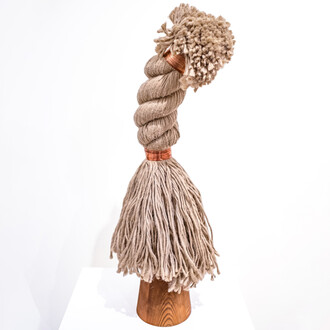This year we commemorate the twenty-fifth anniversary of the 1994 Genocide against the Tutsi in Rwanda which claimed more than one million lives. Traces of the Past gives faces and names to victims and foregrounds the voices of survivors. Rwandan community members now living in the UK tell their stories of survival and meaning-making. In this exhibition they lend objects that embody precious memories of loved ones whom they lost.
The objects on display materialise the everyday of the past: laughter, togetherness and precious family moments full of joy. Through the objects, survivors also recount inhumane acts of violence, the failure of humanity, and how worlds broke apart.
The objects speak to the very human need to hold on to memories, photographs, and the material culture that connect and keep us close to those whose ‘present absence’ we encounter every day. A drum, a milk container, radio batteries, a board game, a sewing maching, and, in the absence of a tangible object, a photograph come to life through oral history interviews. Webare, Caritas, Sophie, Appolinaire and Jean each share intimate accounts of their loved ones, what the objects mean to them, to whom the objects connect them with, and why it is so important to remember and honour those who died such cruel and unjust deaths. As Webare, Caritas, Sophie, Appolinaire and Jean affirm in their stores, ‘we survived for a reason’, ‘we survived to talk’ and to advocate that ‘genocide should never happen again anywhere’.
Traces of the Past encourages us all to foster empathy towards the ‘distant’ suffering of those often perceived as ‘others’. We invite you to listen to and learn from survivors’ accounts and to acknowledge their lives here in the UK. This invitation comes at a time of heightened xenophobia and rising right-wing populism at our doorstep. We encourage you to join survivors to advocate that genocide should never happen again, near or far.
















